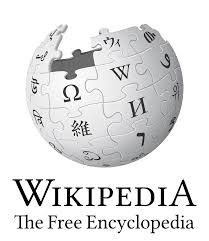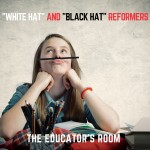[fusion_builder_container hundred_percent=”yes” overflow=”visible”][fusion_builder_row][fusion_builder_column type=”1_1″ background_position=”left top” background_color=”” border_size=”” border_color=”” border_style=”solid” spacing=”yes” background_image=”” background_repeat=”no-repeat” padding=”” margin_top=”0px” margin_bottom=”0px” class=”” id=”” animation_type=”” animation_speed=”0.3″ animation_direction=”left” hide_on_mobile=”no” center_content=”no” min_height=”none”]
My neighbor teacher and I have this roundabout every year. She, the English teacher, doesn’t permit students to use Wikipedia, and the debate ensues not long after she brings up the fact that she does not allow students to use something “so unreliable.” In fact, she’s like a huge majority of teachers who don’t limit the usage of a grassroots-fed compilation of sources like Wikipedia.
It’s time to put that thinking in the dust and embrace Wikipedia as a legitimate resource for students to use for the following reasons:
At the very least, Wikipedia provides a great place to start researching. Seriously, look at just about any entry on the webpage, and you’re bound to learn something. Similarly, if you have trouble getting over the dependability of the entry, scroll to the bottom and you’ll typically see multiple sources (many clickable to examine) and also that the words were vetted by multiple authors.
Wikipedia provides the best up-to-the-minute information on pressing topics. As the world is gripped in fear and anticipation over Ebola, it’s almost without question that Wikipedia has become the most reliable source for what’s happening in Western Africa and in other remote occurrences of the outbreak throughout the globe.
Wikipedia has shown itself to be as reliable as printed encyclopedias. As early as 2005, Wikipedia was as trustworthy as the Encyclopedia Britannica. It’s only improved in framing the scope of information in the last 9 years.
Printed encyclopedias are a thing of the past. Let’s face it, these kids aren’t going to go to their bookshelf to flip through the “W” encyclopedia to find George Washington when they can…
Use websites as a tool of the future. Ask any student to find information, and they’re going to use the Internet. Better that we direct them to look for George Washington on Wikipedia than to expect they’ll avoid searching for him on Yahoo! Answers (which, here, says he was the “president of poop.”) Many teachers fear that Wikipedia is Yahoo! Answers. It is not.
Writing and editing articles can serve as an incredible learning experience. In 2004, I saw that my college (Bloomsburg University of Pennsylvania) was lacking an entry. As a proud Husky (and junior at the time), I thoroughly researched our university’s history during the summer and then made the entry live. As a “thank you,” the college offered me a scholarship after seeing the prodigiousness of my work without me even asking for compensation.
It’s the 6th most widely used website. In fact, when using the most used website (Google) to find out the most used websites, it’s number 1 hit is – you guessed it – a Wikipedia entry.
Group discussion, dialogue, and preservation can help frame the historical context and continue the conversation. Vanderbilt University, for example, hosts edit-a-thons to clean-up misrepresented, trolled entries. If students find something akin to a Yahoo! Answers post, what better way for them to improve history than to work to improve it themselves?
Wikipedia is exemplary of the grassroots, global initiatives that are changing the face of education. It’s great to see the multiple perspectives of things from a variety of views. For example, when I teach about the American Revolution, I ask students to scrutinize it through the lens of the British. The way they do that is by clicking their way through King George III on Wikipedia.
Let’s stop lying to students – teachers use it, too! When the Arab Spring was erupting in December of 2010, I was teaching about the Middle East for the first time in my career. I was engulfed by students’ questions, and to give them the feedback they needed, I turned to Wikipedia. I’m not ashamed to say that I learned more about that event at that time and still do from Wikipedia’s entry.
So, come next week, I’m going to print this article out and hand it to my neighbor teacher. But only after she agrees that it becomes a Wikipedia entry.[/fusion_builder_column][/fusion_builder_row][/fusion_builder_container]





